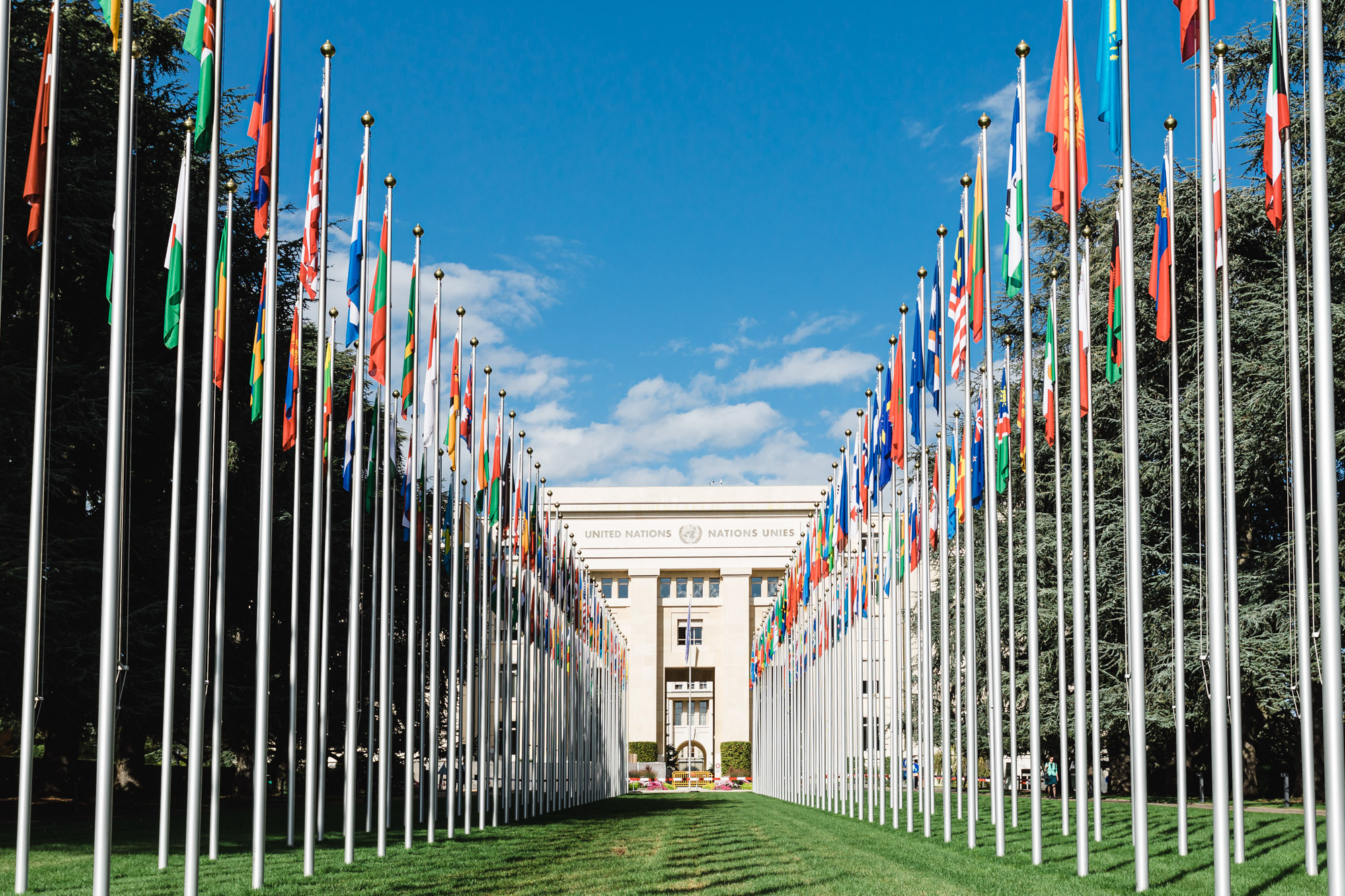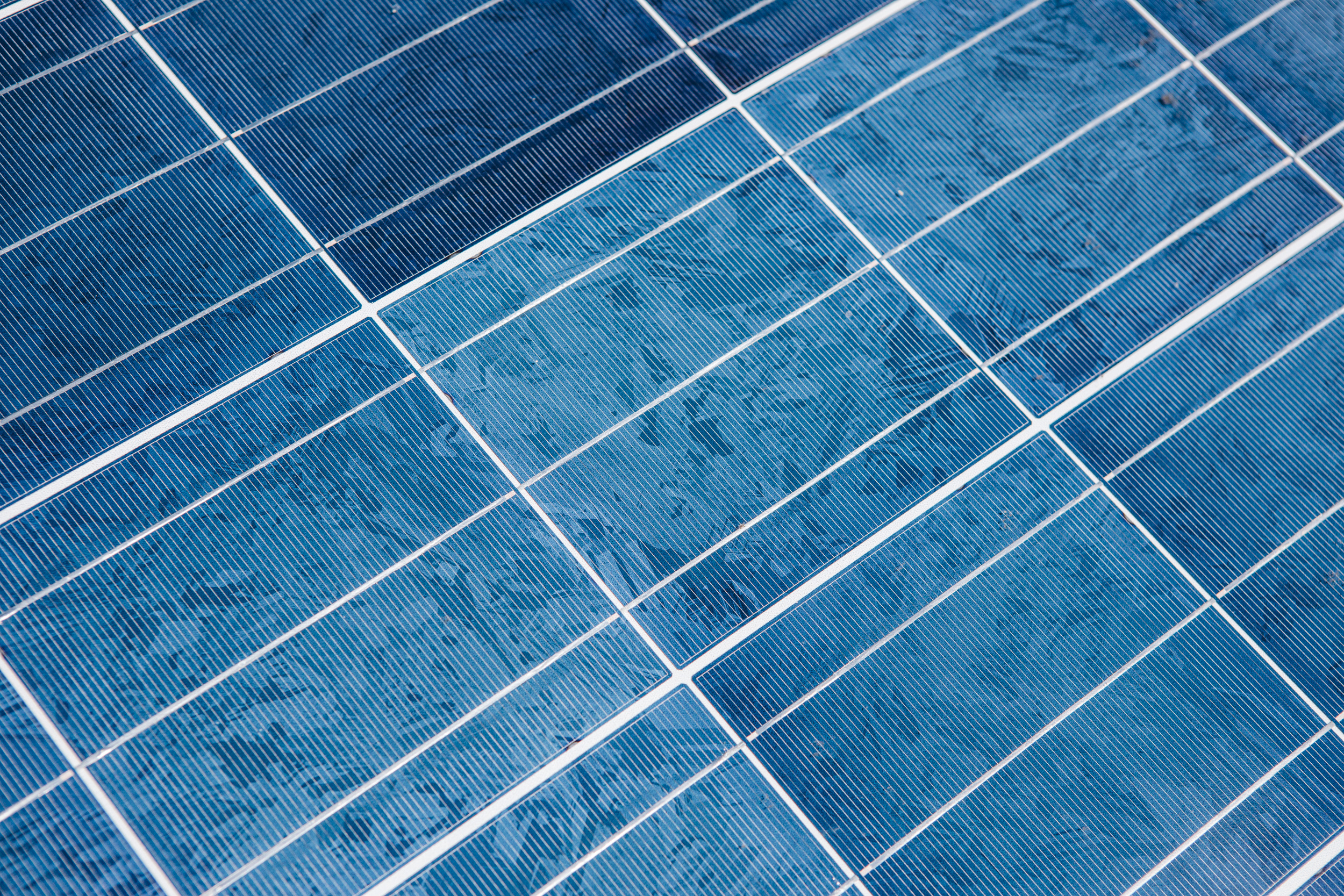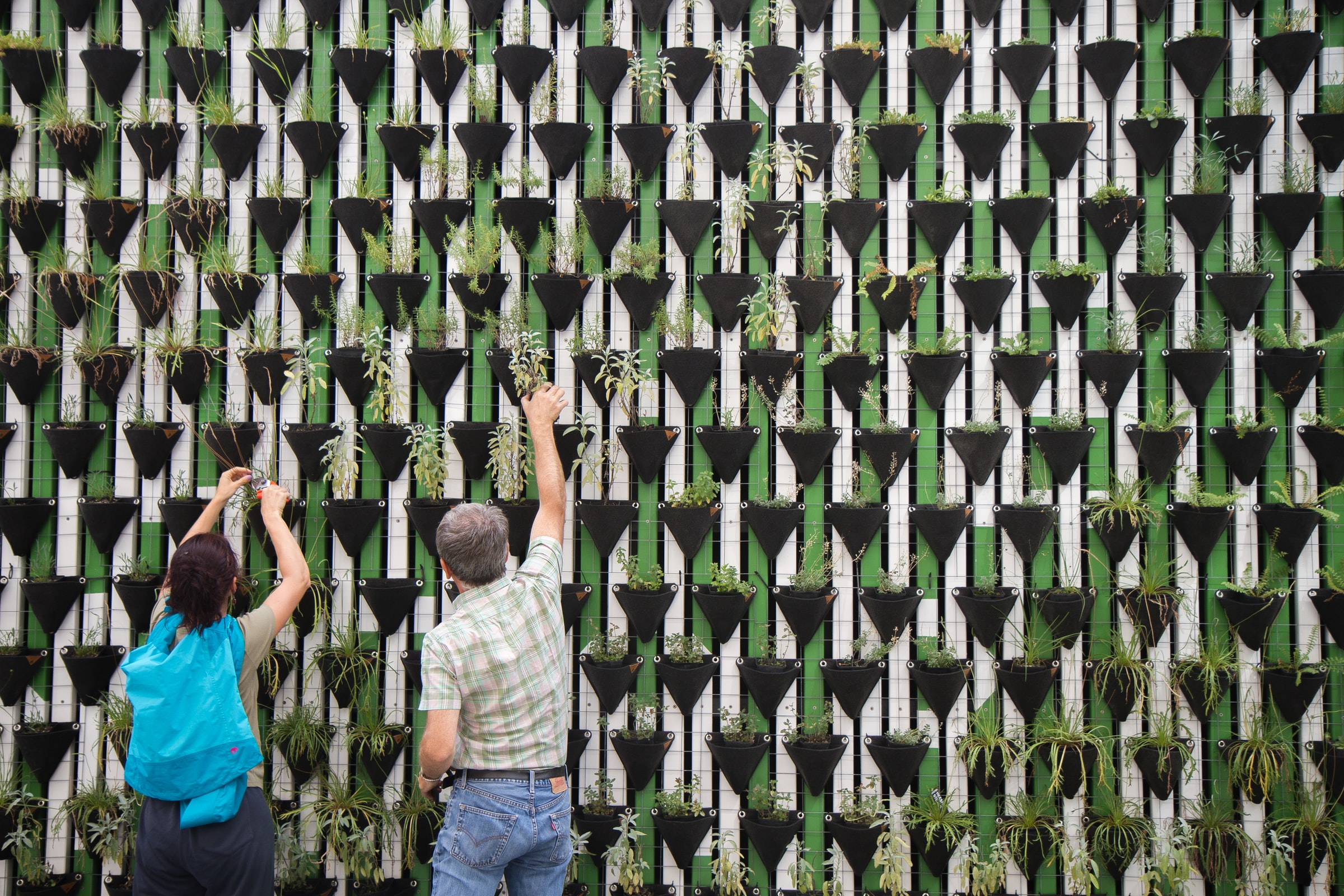Tracking sustainable cooling for all. The economics of climate change. EU, China & US on their way to carbon neutrality: will their implementation strategies converge? The future of mobility. The role of modal shift in achieving transport decarbonisation objectives. Emission trading, coal phase-out and a just transition. Natural climate solutions: a win-win for environment and economy. Discover these and more online events of the week!
You can also subscribe to Climate Online’s newsletter to be reminded about weekly event updates by e-mail:

Biodiversity & Environment
6 May, 18:00 – 19:00 CEST
“The Economics of Biodiversity Review” by University of Oxford, Oxford Martin School
On the 2nd February 2021 The Economics of Biodiversity: The Dasgupta Review was published, an independent, global review on the Economics of Biodiversity led by Professor Sir Partha Dasgupta. “We are facing a global crisis. We are totally dependent upon the natural world. It supplies us with every oxygen-laden breath we take and every mouthful of food we eat. But we are currently damaging it so profoundly that many of its natural systems are now on the verge of breakdown.” David Attenborough writes in the foreword of the The Economics of Biodiversity: The Dasgupta Review. Join for a conversation between the author, Sir Partha Dasgupta and Professor Cameron Hepburn, where they will dicuss the important messages from the review and the road ahead.

Climate Policy & COP26
3 – 10 May
“Petersberg Climate Dialogue XII” by German Federal Ministry for the Environment, Nature Conservation and Nuclear Safety
In the face of the global health, biodiversity and climate crises, we must take global solidarity and multilateral cooperation to a whole new level. In order to rise to the challenge, we must take ambitious climate action now, recognizing time is not on our side. Therefore, the ministerial segment of this year’s Petersberg Climate Dialogue will take place on May 6-7 and focus on political guidance for the UNFCCC negotiation agenda of COP 26 in Glasgow. Building on last year’s virtual approach, various satellite events, taking place from May 3 to May 10, will complete this year’s ministerial segment. These will involve a range of government and non-state actors – including mayors, CEOs, civil society leaders, academics, and others. Watch live broadcast of official events here.
5 May, 14:00 – 15:30 CEST
“Emission Trading, Coal Phase-Out and a Just Transition” by International Carbon Action Partnership – ICAP
One of the biggest changes in energy systems around the world concerns the use of coal. The share of coal has dropped in numerous countries, and many have now adopted official goals to phase out the use of coal. This online session will explore how carbon pricing can contribute to phasing out coal in some countries; how carbon pricing could affect plans for extending coal use in others; what declining coal use implies for the functioning of carbon market; and which flanking measures are needed to ensure a just transition away from coal.
5 May, 15:00 – 16:30 CEST
“Carbon Pricing Developments in Europe and Central Asia Region” by World Bank and Partnership for Market Readiness – PMR
This webinar will showcase the PMR’s country work programs, technical work programs, and policy work programs in three countries of Europe and Central Asia region.
6 May, 10:00 – 11:00 CEST
“The Economics of Climate Change” by United Nations Foundation
Recovering from the COVID-19 pandemic in ways that support climate action requires systemic change in every sector of society, including economies. This message must be made clear to everyone from individuals to world government and when advocated for, it’s important that we’re able to #SayItWithScience. This event gives audiences the opportunity to ask questions of leading scientists at the Intergovernmental Panel on Climate Change (IPCC) on the economics of climate change. This is the first event of many in the #SayItWithScience series, aimed at bringing together IPCC scientists, global youth, and public audiences for frank conversations on what’s needed to fight climate change by restoring faith in science.
6 May, 10:00 – 12:30 CEST
“Energy-Climate Dialogue Event Advancing Energy Transition in Western Balkans and Eastern Europe countries through Enhanced Nationally Determined Contributions” by International Renewable Energy Agency – IRENA and Energy Community Secretariat
This virtual event aims to encourage all governments of the region towards more ambitious climate action driven by energy transition. The first part of the conference will explore key drivers behind the NDC enhancement measures undertaken by countries across the region and provide a better understanding of the process followed in elaborating their NDCs, including potential benefits and pitfalls. The second session will give stakeholders the opportunity to engage in discussions about the challenges and opportunities in the process of decarbonisation and transformation of the energy sector.
6 May, 12:35 – 13:25 CEST
“EU, China & US on their way to carbon neutrality: will their implementation strategies converge?” by Florence School of Regulation – FSR
What are the lessons that other jurisdictions can take from the European climate policy experience? Can/should the European experience with climate regulation be replicated in non-European contexts? Will the climate neutrality implementation strategies converge or diverge across different countries? Which policies will lead EU, US and China -the three main players in the global climate arena- towards the net-zero emissions target? What will be the impact of the Biden administration on international cooperation and climate policy in the years to come? Can international cooperation among Emission Trading Systems contribute to promoting a global climate policy?
6 May, 14:00 – 15:30 CEST
“Paris Agreement Article 6 Community Centre: Swiss-Peruvian Agreement on Article 6 Cooperation” by European Roundtable on Climate Change and Sustainable Transition – ERCST
This meeting is part of a series of webinars which are part of ERCST’s work stream on Article 6 of the Paris Agreement. The aim is to bring together a broader community, beyond the UNFCCC negotiators, which is interested in Article 6. ERCST hopes to catalyse an exchange of information and experiences by organising webinars and hosting an Article 6 Library on our website. During this webinar, an initial presentation will be given to present the Swiss-Peruvian agreement and will include: The content of the agreement, showing what needs to be included in such an agreement. What kind of national preparations are necessary in order to be ready for such an agreement, for example in terms of institutional arrangement? How deals are done under the agreement in order to develop projects? Register here.
6 May, 16:00 – 17:00 CEST
“2021 Global Methane Assessment – Launch and Media Briefing” by Climate & Clean Air Coalition and United Nations Environment Programme – UNEP
The Global Methane Assessment is a major new global study. It was produced by a team of scientists from leading research centres around the world. The findings in the Assessment are the result of modelling that uses five state-of-the art global composition-climate models to evaluate changes in the Earth’s climate system and surface ozone concentrations from reductions in methane emissions. The Assessment includes major implications for the mitigation plans in three crucial global sectors for climate change: fossil fuels, agriculture, and waste management. It also presents startling evidence of the huge health and economic impacts of methane emissions worldwide.
7 May, 14:00 – 15:15 CEST
“What can the US and the EU learn from each other to accelerate climate action?” by Euractiv
The US and the EU, the world’s second and third-largest emitters of greenhouse gases, respectively, are now committed to renewing their alliance in the effort to deal with the climate crisis. Their aim is not only to reduce their own emissions but, by cooperating with their global partners, particularly other major economies, to strengthen the world’s climate ambitions. Join this virtual conference to discuss how the EU and US can cooperate, share ideas and technologies, and learn from each other to accelerate global climate action.
7 May, 19:00 – 20:30 CEST
“Natural Climate Solutions: A Win-Win Solution for Our Environment and Our Economy” by Environmental and Energy Study Institute – EESI and U.S. Nature4Climate
Join the online briefing on the role natural climate solutions can play in both mitigating climate change and stimulating the economy. Natural climate solutions, such as sustainable forestry and regenerative agriculture, reduce carbon emissions and sequester carbon through management of the world’s forests, grasslands, and wetlands. Panelists will provide an overview of the diverse range of climate-sensitive strategies that can be implemented in America’s farms and ranches, forests, grasslands and urban communities. They will also discuss the many economic benefits—from jobs to increased land productivity to new income for landowners—that can be derived by implementing natural climate solutions.

Renewables & Energy Transition
3 May, 16:00 – 17:00 CEST
“The Future of Mobility – Transport Industry in Flux” by International Association for Energy Economics – IAEE
This webinar examines the massive changes going on in the world of mobility: the electrification of transport, the digitalisation of the motor vehicle and growing competition from China and a whole host of new startups, and asks what these changes mean for the consumer, the environment and the industry itself. One of the core focusses will be on new mobility business models such as car sharing which are poised to disrupt car ownership, logistics and mobility in the coming years. Although the focus will be on road transport we will also glance into the world of making and air transport which are both set to see significant innovation and change in the years ahead.
3 – 4 May
“Energy Use for Adaptation: State-of-the-art and advancements in Integrated Assessment Modelling” by Università Ca’Foscari Venezia, CMCC Foundation and Venice centre in Economic and Risk Analytics for public policies
Space cooling needs will be an increasingly important driver of future energy demand, but most energy and climate policy scenarios do explicitly represent how the demand for this energy service will respond to climate change. As a consequence, we have a limited knowledge regarding the potential implications growing space cooling could have on the environment, the economy as represented by different sectors and different groups of households, especially in the context of a deeper and accelerating energy transition. This workshop seeks to identify knowledge gaps and delineate directions for further research within a field of research that lies at the intersection between applied and empirical economics and economic modelling or Integrated Assessment Modelling (IAM).
4 May, 14:30 – 16:00 CEST
“The role of gas in Europe’s future energy mix and the transition to zero carbon of Europe’s power sector” by Euractiv
Can gas, whether renewable or abated through carbon capture and storage, be the optimal complementary energy technology to balance intermittent renewable electricity such as wind and solar in the coming decades? And how can we ensure enough funding for the different technologies for decarbonisation? Join this online debate to discuss the role of gas and gas infrastructure in Europe’s future energy mix and the transition to zero carbon of Europe’s power sector.
5 May, 10:00 – 11:15 CEST
“A “deep” thinking around the EU Minimum Energy Performance Standards” by EuroACE
This first webinar will explore the introduction of Minimum Energy Performance Standards (MEPS), their regulatory nature and how these policy instruments fit into the Energy Performance of Buildings Directive ‘architecture’ (i.e. alignment with the EU climate goals, linkages with long-term renovation strategies, etc.). Speakers will also look at which embedded elements could support their rapid roll-out and help ensure higher and deeper renovation rates for buildings in the EU.
5 May, 11:00 – 12:00 CEST
“The Role of Critical Minerals in Clean Energy Transitions” by International Energy Agency – IEA
IEA’s new World Energy Outlook special report aims to explain the complex links between clean energy technologies and minerals, assess the supply challenges that could affect an acceleration of energy transitions, and explore the implications for policy makers as they seek to balance ensuring reliable supplies with promoting responsible and sustainable development of mineral resources. Join to find out more.
5 May, 16:00 – 17:30 CEST
“Chilling Prospects: Tracking Sustainable Cooling for All” by Sustainable Energy for All
In 2020, global development efforts stalled as governments worked to address the health, social, and economic consequences of the COVID-19 pandemic. At the same time, 2020 was the hottest year on record, and we learned and that in every region of the world, heatwaves have increased in their frequency and length since the 1950s. These two factors, coupled with persistent energy access gaps in some of the world’s hottest and most populous countries, mean that the challenge of delivering access to sustainable cooling is likely to continue growing in size and scope. Join the release of report “Chilling Prospects: Tracking Sustainable Cooling for All 2021”, for an update on our global progress on delivering Cooling for All.
6 May, 11:40 – 12:30 CEST
“The Role of Modal Shift in Achieving Transport Decarbonisation Objectives” by Florence School of Regulation – FSR
The shift of passenger and goods traffic away from less environmentally sound modes, such as road in particular, but also aviation, towards the greenest modes, namely rail and inland waterways, constitutes a central pillar of the EU transport decarbonisation strategy. In fact, the EU’s modal shift strategy sets out that rail freight traffic should increase by 50% by 2030 and double by 2050, whereas transport by inland waterways and short sea shipping should increase by 25% by 2030 and by 50% by 2050. This panel discussion brings together EU policy makers and industry experts for a timely debate on the technical and regulatory barriers, as well as the possible solutions and legislative opportunities to turn the EU’s modal shift objectives into reality.

Sustainability & Circular Economy
4 May, 14:00 – 15:30 CEST
“Financing Green Recovery” by UN Environment Management Group – EMG
The dialogue is focusing on the important role of the public sector, and fiscal policy, that can support a stronger and greener economic recovery, whilst creating a collaborative and enabling environment for the private sector to mobilize resources to Build Back Better.
5 May, 10:00 – 12:45 CEST
“How can a social equity lens improve environmental policy?” by BiH ESAP 2030+
The webinar will introduce the main relationships between environmental and social equity issues in Bosnia and Herzegovina. Building on relevant examples from the European context will explore the benefits of integrating social equity considerations into environmental policy-making and discussing ways to do so.
5 May, 11:00 – 13:00 CEST
“Integrated Approaches to Sustainable Infrastructure Investment” by UNEP
Infrastructure systems are drivers of economic growth and enable access to basic services and economic opportunities that improve livelihoods and well-being. The OECD has estimated that US$6.9 trillion will need to be invested in infrastructure every year to meet achieve the SDGs by 2030. This will be even more significant in the post-COVID-19 context, as infrastructure investments are likely to play an important role in the socio-economic recovery and government stimulus packages as one of the most effective ways to create jobs and stimulate economic growth.
5 May, 13:30 – 15:00 CEST
“Sustainable Food for a Sustainable Future” by Geneva Environment Network
From supply chains to our plates, what we eat has a big impact on the planet’s resources. Presented by CNBC International TV, join a documentary online screening that takes a look at how nature-based solutions can help us eat healthier for a better planet.
6 May, 15:00 – 17:00 CEST
“Bioeconomy as an approach towards sustainable development” by BioMonitor Project, ICABR and Sustainable Co-Production
The bioeconomy has a high potential to contribute to overall well-being and health by reducing greenhouse gas emissions and other pollutants, by creating more sustainable consumer goods, and by creating new employment opportunities in rural areas. In a webinar leading international scholars will reflect on the sustainable development potential of the bioeconomy with a focus on the EU. Successful examples from the EU will be presented, factors for success and lessons learned discussed. The webinar will be followed by additional partner events organised by the BioMonitor project.
6 May, 20:00 – 21:00 CEST
“The Future of Food Production on a Changing Planet” by WWF
Where and how we produce food impacts the environment more than any other human activity. The choices we make about what we eat have lasting consequences for wildlife, our water supply, critical ecosystems, and the climate. As the global population and incomes worldwide increase, both are driving changes in what’s consumed. And as climate change introduces layers of uncertainty for where and how food can be grown, and for those who grow it, there has never been more at stake. Join to hear from Jason Clay, WWF’s senior vice president for Markets and the executive director of the Markets Institute, about the future of food. Jason leads WWF’s work to promote environmentally sensitive practices across our supply chains by bringing together governments, foundations, researchers, NGOs, and private companies to address problems at a global level.
7 May, 16:00 – 17:00 CEST
“UNEP at 50 Dialogue with Inger Andersen” by UNEP
Anniversaries offer opportunities to reflect on the past and imagine the future. In 2022, the United Nations Environment Programme (UNEP) turns fifty and has a chance to reimagine itself. Created to catalyze environmental work within the United Nations and beyond, how has UNEP done? What are the new challenges and what should it do differently? Who can cause that change, and how can they do so? Register here.

